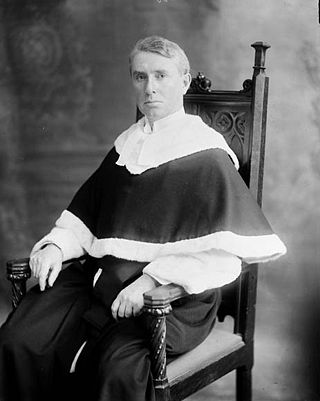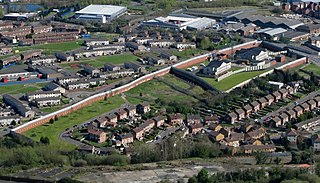See also
- No Peace Without Justice, an Italian nonprofit organization
No Justice is a country band in the United States.
No Justice may also refer to:

The International Court of Justice, also called the World Court, is one of the six principal organs of the United Nations (UN). It settles disputes between states in accordance with international law and gives advisory opinions on international legal issues. The ICJ is the only international court that adjudicates general disputes between countries, with its rulings and opinions serving as primary sources of international law.

Peace is a concept of societal friendship and harmony in the absence of hostility and violence. In a social sense, peace is commonly used to mean a lack of conflict and freedom from fear of violence between individuals or groups.

The Permanent Court of Arbitration (PCA) is a non-UN intergovernmental organization located in The Hague, Netherlands. Unlike a judicial court in the traditional sense, the PCA provides services of arbitral tribunal to resolve disputes that arise out of international agreements between member states, international organizations or private parties. The cases span a range of legal issues involving territorial and maritime boundaries, sovereignty, human rights, international investment, and international and regional trade. The PCA is constituted through two separate multilateral conventions with a combined membership of 122 states. It is not a United Nations agency, but a United Nations observer.

A judge is a person who presides over court proceedings, either alone or as a part of a panel of judges. A judge hears all the witnesses and any other evidence presented by the barristers or solicitors of the case, assesses the credibility and arguments of the parties, and then issues a ruling in the case based on their interpretation of the law and their own personal judgment. A judge is expected to conduct the trial impartially and, typically, in an open court.

World peace is the concept of an ideal state of peace within and among all people and nations on Planet Earth. Different cultures, religions, philosophies, and organizations have varying concepts on how such a state would come about.
JP may refer to:

A justice of the peace (JP) is a judicial officer of a lower or puisne court, elected or appointed by means of a commission to keep the peace. In past centuries the term commissioner of the peace was often used with the same meaning. Depending on the jurisdiction, such justices dispense summary justice or merely deal with local administrative applications in common law jurisdictions. Justices of the peace are appointed or elected from the citizens of the jurisdiction in which they serve, and are usually not required to have any formal legal education in order to qualify for the office. Some jurisdictions have varying forms of training for JPs.

The term magistrate is used in a variety of systems of governments and laws to refer to a civilian officer who administers the law. In ancient Rome, a magistratus was one of the highest ranking government officers, and possessed both judicial and executive powers. In other parts of the world, such as China, a magistrate was responsible for administration over a particular geographic area. Today, in some jurisdictions, a magistrate is a judicial officer who hears cases in a lower court, and typically deals with more minor or preliminary matters. In other jurisdictions, magistrates are typically trained volunteers appointed to deal with criminal and civil matters in their local areas.

The peace lines or peace walls are a series of separation barriers in Northern Ireland that separate predominantly Irish republican or nationalist Catholic neighbourhoods from predominantly British loyalist and unionist Protestant neighbourhoods. They have been built at urban interface areas in Belfast and elsewhere.
Promoter or Promotor may refer to:
Quaker Peace & Social Witness (QPSW), previously known as the Friends Service Council, and then as Quaker Peace and Service, is one of the central committees of Britain Yearly Meeting of the Religious Society of Friends - the national organisation of Quakers in Britain. It works to promote British Quakers' testimonies of equality, justice, peace, simplicity and truth. It works alongside both small local and large international pressure groups.
Communium interpretes dolorum is an encyclical by Pope Pius XII at the ending of World War II in Europe, appealing for prayers for peace during May, given at Rome, at St. Peter's on Sunday 15 April 1945, in the seventh year of his pontificate.

The judiciary of Jamaica is based on the judiciary of the United Kingdom. The courts are organized at four levels, with additional provision for appeal to the Judicial Committee of the Privy Council in London. The Court of Appeal is the highest appellate court. The Supreme Court has unlimited jurisdiction in all cases, and sits as the Circuit Court to try criminal cases. The Parish Court in each parish hears both criminal and civil cases, excluding grave offences. The Petty Sessions are held under Justices of the Peace, with power to hear minor crimes.
Justice and Peace may refer to the ideal of peace based on justice, or to institutions working towards this ideal such as:

The justice of the peace is the small claims court in the judicial system of Belgium, and stands at the bottom of the Belgian judicial hierarchy. There is a justice of the peace for each judicial canton, which is the smallest geographical subdivision of Belgium for judicial purposes. Most judicial cantons cover multiple municipalities, except in the case of larger towns and cities, which are often divided into multiple judicial cantons. A judicial canton has an average population of 50,000 to 60,000 people, but some have a population as low as 30,000 people or as high as 100,000 people. The justices of the peace only have jurisdiction over their own canton. As of 2017, there are 187 cantons with as many justices of the peace in Belgium, who hear cases in 229 seats.

Leymah Roberta Gbowee is a Liberian peace activist responsible for leading a women's nonviolent peace movement, Women of Liberia Mass Action for Peace that helped bring an end to the Second Liberian Civil War in 2003. Her efforts to end the war, along with her collaborator Ellen Johnson Sirleaf, helped usher in a period of peace and enabled a free election in 2005 that Sirleaf won. Gbowee and Sirleaf, along with Tawakkul Karman, were awarded the 2011 Nobel Peace Prize "for their non-violent struggle for the safety of women and for women's rights to full participation in peace-building work."
The Invasion of Banu Lahyan took place in September, 627 AD in Rabi' al-awwal or Jumada Al-Awwal, 6 AH of the Islamic calendar.
Air Peace Limited is a private Nigerian airline founded in 2013 with its head office in Ikeja, Lagos State, Nigeria, the flag carrier and the largest airline of Nigeria and West Africa. Air Peace, which provides passenger and charter services, serves the major cities of Nigeria and flies to several West African destinations and the Middle East. The airline also established a subsidiary, Air Peace Hopper, in 2018.

Peace processes have taken place during several phases of the Afghanistan conflict, which has lasted since the 1978 Saur Revolution.

"No justice, no peace" is a political slogan which originated during protests against acts of ethnic violence against African Americans. Its precise meaning is contested. The slogan was used as early as 1986, following the killing of Michael Griffith by a mob of youths.